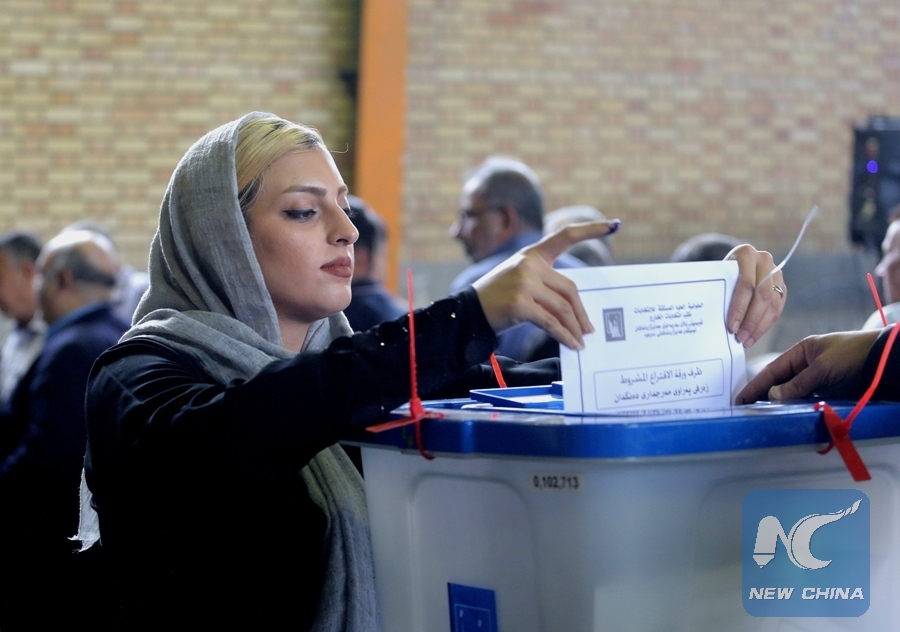
An Iraqi woman living in Iran votes at an overseas polling station for Iraq's parliamentary elections in southern Tehran, Iran, on May 11, 2018. Thousands of Iraqis living in Iran casted their ballots in the country. The 2018 parliamentary election is the first one since Iraq's historical victory over the Islamic State group. (Xinhua/Ahmad Halabisaz)
UNITED NATIONS, May 30 (Xinhua) -- The top UN envoy in Iraq on Wednesday asked for the swift formation of an inclusive government in Iraq following the May 12 parliamentary elections.
"The post-election phase represents a crucial time for Iraq," Jan Kubis, the UN secretary-general's special representative for Iraq, told the Security Council. "We urge political leaders to prioritize inclusive, non-sectarian dialogue, and to ensure the swift formation of a new truly national government that reflects the will of the people of Iraq."
It is essential that the new government works as one across the sectarian and ethnic divides in pursuing much-needed political, economic and social reforms, while working to improve the economy, public services delivery and social justice, said Kubis.
Such a new government will guarantee the future of Iraq as a stable, prosperous, united, democratic, fully sovereign and independent federal state with good relations with all its neighbors based on mutual respect, non-interference, and common interests as a factor of stability, cooperation and prosperity, also in the region, he said.
He also urged political leaders to ensure the full participation of women in negotiations on the formation of the next ruling coalition and the government, and their representation at the highest levels in Iraq's political and decision-making structures in Parliament and government.
The May 12 elections were held in a generally calm and stable environment, but were marked by a low voter turnout of only 44.52 percent, said Kubis.
The decision by more than half of the voting population not to exercise their democratic right sends a strong signal to the elites ruling the country since 2003, he said. "I urge the Iraqi political elites to draw the necessary conclusions on the need for improved representation, justice for all, democratic accountability and good governance void of corruption, sectarian quota system, nepotism and patronage."
Kubis urged the independent electoral management bodies to adjudicate all appeals with regard to electoral results properly, fully and in time, to enable corrections of the problems, justice and the timely certification of the final election results.
He said the humanitarian crisis in Iraq continues with more than 2.1 million people remaining displaced and in need of humanitarian assistance.
Funding to provide the most vulnerable with emergency assistance is at critically low levels. Out of the world body's appeal for 569 million U.S. dollars, only 18 percent was met by May 15, he said, adding that demining and stabilization efforts are also underfunded.

